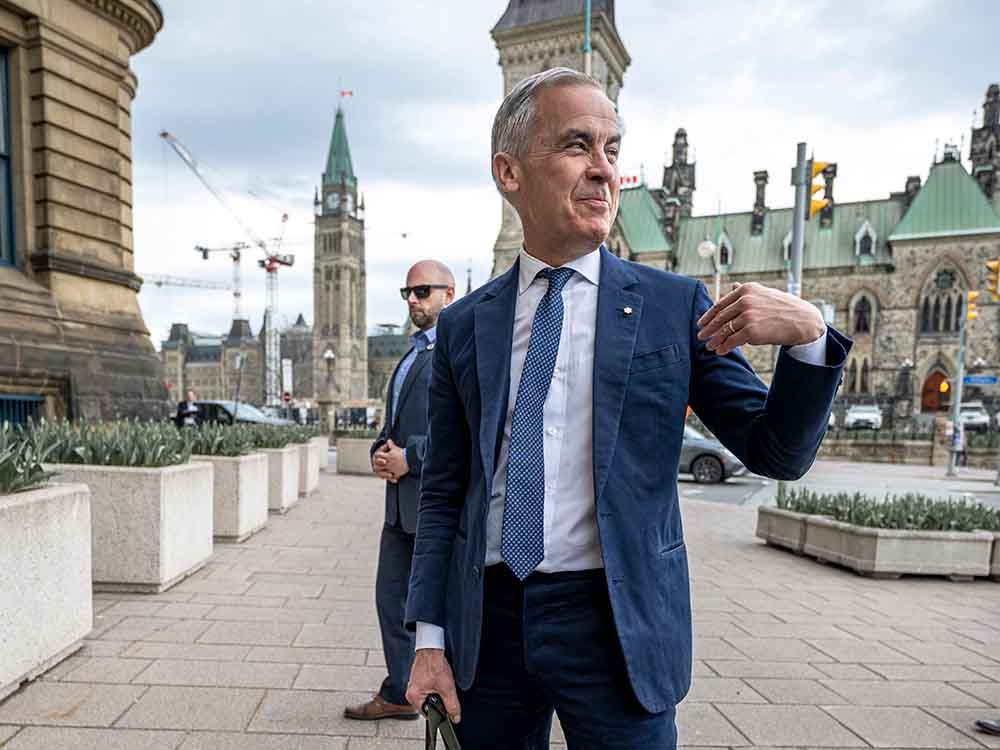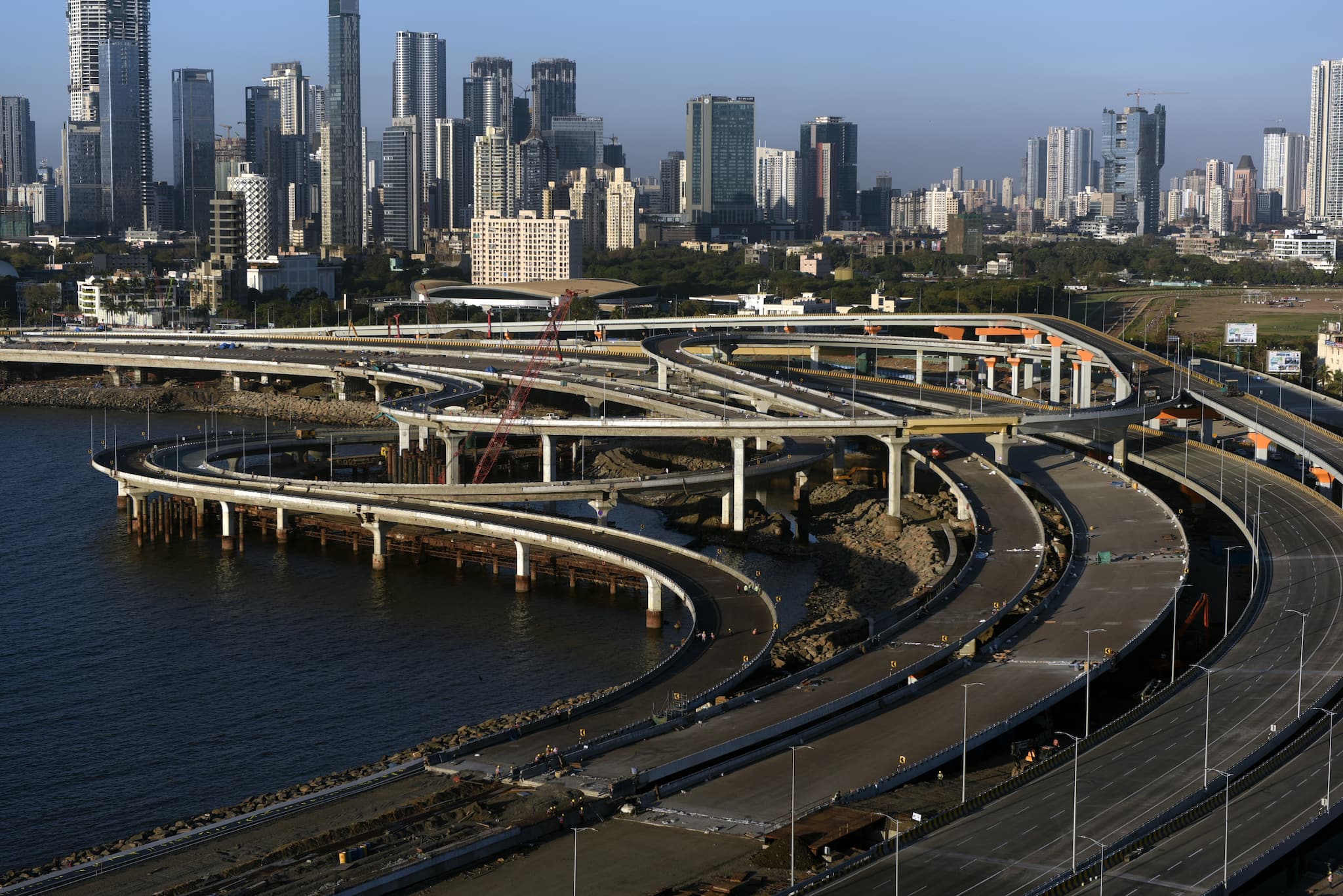Taxes and tariffs among at least five areas where parties' policies overlap You can save this article by registering for free here . Or sign-in if you have an account. Subscribe now to read the latest news in your city and across Canada.
Subscribe now to read the latest news in your city and across Canada. Create an account or sign in to continue with your reading experience. Create an account or sign in to continue with your reading experience.

Sign In or Create an Account Economists say they expect the new Liberal government led by Prime Minister Mark Carney will look for support on an issue-by-issue basis rather than forming another coalition similar to what past prime minister Justin Trudeau had with the New Democratic Party to stay in power. “There is enough overlap between the Liberal platform and each of the three other main parties that compromise can be found,” Robert Kavcic and Benjamin Reitzes, economists at BMO Economics , said in a note. “There might be brokering on a case-by-case basis.
” Minority governments tend to have shorter terms, so it is “crucial that the broader interests of Canada prevail,” Toronto-Dominion Bank economists, led by chief economist Beata Caranci, said in a note. “And now the rubber hits the road on collaboration and negotiations, with Liberals caught between the demands of the U.S.
administration and those of domestic politics.” Breaking business news, incisive views, must-reads and market signals. Weekdays by 9 a.
m. By signing up you consent to receive the above newsletter from Postmedia Network Inc. A welcome email is on its way.
If you don't see it, please check your junk folder. The next issue of Posthaste will soon be in your inbox. We encountered an issue signing you up.
Please try again Interested in more newsletters? Browse here. Here are five areas of overlap the minority Liberal government could potentially tap into. Taxes “Both the Conservatives and Liberals included tax cuts as part of their platforms, with only minor differences between them,” TD said.
The Liberals called for the tax on the lowest bracket to be reduced to 14 per cent from 15 per cent, while the Conservatives said they wanted to drop it to 12.75 per cent. The NDP proposed raising the amount of untaxed income to $19,500 from the current level of $16,129.
“The Bloc Québécois will look for relief for seniors,” BMO said. Deficits Under the Liberals, “the deficit is set to widen sharply for (fiscal year) FY25/26 and subsequent years,” hitting $62.3 billion this year, or two per cent of gross domestic product (GDP), compared with a forecast of $42.
2 billion in the fall economic statement, Kavcic and Reitzes said. But deficit spending was a feature of all three of the main federal parties’ platforms, although the Conservatives forecasted a much smaller shortfall for this fiscal year of $31.4 billion, representing one per cent of GDP, while the NDP and the Bloc Québécois costed out deficits of $53.
1 billion and $56.7 billion, respectively. Kavcic and Reitzes said the Liberals’ deficit outlook assumed “decent economic growth” of 1.
7 per cent this year, while they expect 0.7 per cent growth. Defence This area could represent a major budget line for the new government since the Liberals have pledged to spend two per cent of GDP on defence by 2030.
The Parliamentary Budget Office said that translates into $24.9 billion, though that could change depending on economic growth. Two per cent is the baseline spending level for North Atlantic Treaty Organization (NATO) members.
TD economists said that target could rise to three per cent of GDP as other members ramp up spending, “leaving Liberals in catch-up mode from the current proposal.” The Conservatives proposed a similar timeline to increase defence spending , pricing their plan at approximately $25 billion, while the NDP proposed hitting the NATO target by 2032. Canada is projected to spend 1.
4 per cent of its GDP on defence spending in 2024-25. Tariffs Liberals managed to pull their electoral prospects out of the flames thanks to Donald Trump dropping his tariff bomb on the world economy. All parties proposed action to meet the tariff menace, with Conservatives urging the continuation of retaliatory tariffs that are already in place, including on $60-billion worth of U.
S. imports into Canada. The Liberals and the Conservatives also want to protect Canada’s automotive sector.
The former proposed to create a $2-billion fund to help the sector’s workers build expertise, while the latter wants to cut the GST on Canadian-made cars as long as U.S. tariffs on foreign-made imports stand.
The NDP proposed a similar plan and also favoured retaliatory tariffs. Housing All the parties had massive goals for building more housing and set targets that have never been met before by the construction industry. The Liberals want to build 500,000 homes a year, the Conservatives wanted 2.
3 billion homes in five years and the NDP wanted three million over the same period. Canada built around 240,000 homes in 2023, according to Canada Mortgage and Housing Corp. (CMHC) estimates, but the country only has the capacity to annually build 400,000 homes.
Both the Liberals and Conservatives offered to cut the GST on new home sales, but at different price points. The NDP called for the CMHC to offer “low-interest, public-backed mortgages.” Both the Liberals and the NDP want to use Crown land to build housing, but the NDP wants it to be rent-controlled.
“Meantime, the minority standing opens up the possibility that more priorities need to be funded in order to garner support,” Kavcic and Reitzes said. Sign up here to get Posthaste delivered straight to your inbox. Distrust of the Liberals and longstanding frustration over the party’s policies on energy, including the Impact Assessment Act (Bill C-69 or the “no-more-pipelines act”) and the federal emissions cap on oil and gas, appear not to have been alleviated by Mark Carney’s campaign pledge to “build Canada strong” with a renewed focus on the economy.
A recent survey of energy executives and institutional investors suggests that Monday’s election outcome doesn’t bode well for oil and gas investment in the months and years ahead. — Meghan Potkins, Financial Post Read the full story here. This reader has a question regarding “ financial advisers ” offered by banks.
She meets with one from time to time to review her financial plan but is essentially a DIY investor. She wants to know if bank advisers are compensated if they promote any funds that have commissions or fees. She also wonders if they are a good choice to bounce investing ideas off of.
Read the answer here. Are you worried about having enough for retirement? Do you need to adjust your portfolio? Are you starting out or making a change and wondering how to build wealth? Are you trying to make ends meet? Drop us a line at [email protected] with your contact info and the gist of your problem and we’ll find some experts to help you out while writing a Family Finance story about it (we’ll keep your name out of it, of course).
McLister on mortgages Want to learn more about mortgages? Mortgage strategist Robert McLister’s Financial Post column can help navigate the complex sector, from the latest trends to financing opportunities you won’t want to miss. Plus check his mortgage rate page for Canada’s lowest national mortgage rates, updated daily. Financial Post on YouTube Visit the Financial Post’s YouTube channel for interviews with Canada’s leading experts in business, economics, housing, the energy sector and more.
Today’s Posthaste was written by Gigi Suhanic with additional reporting from Financial Post staff, The Canadian Press and Bloomberg. Have a story idea, pitch, embargoed report, or a suggestion for this newsletter? Email us at [email protected] .
Bookmark our website and support our journalism: Don’t miss the business news you need to know — add financialpost.com to your bookmarks and sign up for our newsletters here Postmedia is committed to maintaining a lively but civil forum for discussion. Please keep comments relevant and respectful.
Comments may take up to an hour to appear on the site. You will receive an email if there is a reply to your comment, an update to a thread you follow or if a user you follow comments. Visit our Community Guidelines for more information.
.
Business

Posthaste: TD, BMO economists jumpy about Liberal minority with Canada at dangerous crossroad

Taxes and tariffs among at least five areas where parties' policies overlap














